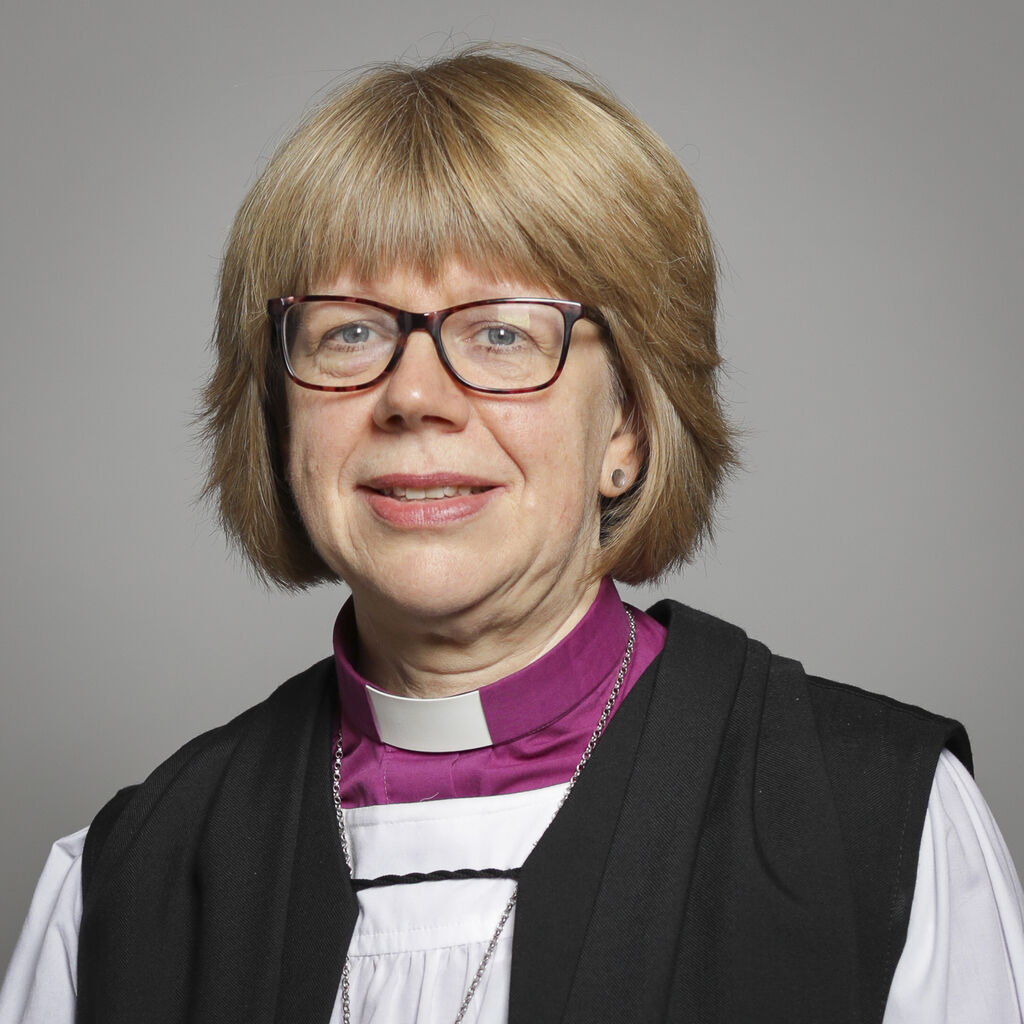Opinion: Why I can't rejoice over the new Archbishop

Disclaimer: CARE is politically-neutral, and is not affiliated with any one church denomination; the views contained in this blog are those of the author, and do not reflect the organisation as a whole.
Nearly a year after Justin Welby announced he would step down as Archbishop of Canterbury, today Dame Sarah Mullally was installed in his place. In sharp contrast to the Roman Catholic Church, who elected a new Pope within a few weeks of Pope Francis’ death, in true bureaucratic style, this appointment has taken many, many months.
At CARE, we have the immense privilege of working with many Anglican churches and indeed other denominations as well. And we consider it a huge blessing and privilege. I may not be an Anglican myself, but I recognise the unique place the Church of England has in our national life and the particular advantages it holds as the official, state church.
I know across the Anglican Church today, the appointment of Dame Sarah Mullally has sparked contrasting reactions. For some, this is a day of joy and significance as the first female Archbishop of Canterbury is appointed. But for others, there is disappointment, perhaps even anger and fears for the future of the church.
As I write this response, perhaps it is helpful to explain that the article will divide into two parts. Firstly, I want to call us to pray for Dame Sarah. Like or loathe the new appointment, she is taking on a huge job at a very complex and difficult time in both the church’s history and the nation’s story as well. So before in the second half of this piece, I set out my personal reflections on why I think the outcome, whilst not as bad as some feared, is still the wrong one for the Church, I want to call us to pray.
Pray for those in authority
I’m personally deeply grateful for the leadership Dame Mullally has shown during debates on assisted suicide. She has spoken with exactly the kind of moral courage and clarity I would want from a senior church leader. She has been very up front in her opposition to the legislation and I hope she continues to lead this from the House of Lords.
During second reading debate, she said this: “As the noble Baroness, Lady May, has just pointed out, to change the law is to change society. Any law that introduces choice for a few is not limited in its effect to only those few. If passed, the Bill will signal that we are a society that believes that some lives are not worth living. The Bill would become our state-endorsed position, and our NHS would be active in its delivery. It is the role of the House to scrutinise, but there are no amendments to the Bill that could safeguard us completely from its negative effects.”
There are other areas of civic life, like the NHS where her experience as chief nursing officer means she is well placed to speak into key debates on the future of healthcare in our nation. She has also shown a real interest in prison reform and bringing Christian principles to bear in how that should pan out.
With this in mind, I believe that Paul’s command in 1 Timothy 2:1-4 to pray for leaders applies to Dame Mullally. We should ask God to give her wisdom, skill, courage, insight and winsomeness because the challenges she will face are legion.
These challenges are both external and internal. As you look around Britain today, it is so clear that we are an increasingly divided and fractured country. Even this week, we’ve seen a brutal and cruel terrorist atrocity committed against Jews gathering at their synagogue for Yom Kippur, one of the most important and sacred days in the Jewish calendar.
In response, at train stations across the country, pro-Hamas supporters gathered to take up the antisemitic chant of ‘from the river to the sea’. This is a chant that aims at the destruction of all Israel. I can only imagine what those images on social media do for the Jewish community across the UK.
Beyond the rise in antisemitism, there is also the toxic fusion of a form of external Christianity with a political ideology that in parts is very, very right wing. Wider public concern around Immigration is both understandable and the need to address illegal immigration very urgent. But this concern does at times express itself in profoundly unchristian ways. I will pray that Dame Mullally finds a way to speak God’s truth, with grace, into these debates.
But beyond the external challenges, she is taking up her position at a time when the CofE is bitterly divided. There are still big questions over its future and when/if evangelicals will decide to leave and set up something new. It must surely have crossed her mind that even if her tenure is very short – and she is just seven years off the mandatory retirement age of 70 – she still might be the Archbishop under whom the Anglican Communion splits.
It was striking how strongly Gafcon, which represents the global Anglican church responded to her appointment.
Laurent Mbanda, Chairman of the Gafcon Primates Council, said: "It is with sorrow that Gafcon receives the announcement today of the appointment of Dame Sarah Mullally as the next Archbishop of Canterbury. This appointment abandons global Anglicans, as the Church of England has chosen a leader who will further divide an already split Communion.”
The disagreements go beyond same-sex couple blessings and ultimately come down to your understanding of the gospel itself. Whilst successive Archbishops have generally represented different wings of the church (Carey was evangelical, Williams more liberal, Welby more evangelical), there has been a growing sense that some kind of reckoning is coming.
Then there are ongoing safeguarding concerns. One survivor of church abuse texted Cathy Newman, the Channel 4 journalist who played a key role exposing Welby’s role in a previous abuse scandal to say Mullally’s appointment is a ‘total disaster’. Will Mullally even survive an interview with Cathy Newman? Time will tell.
For all these reasons we should pray for her! She is a sister in Christ, a fellow image-bearer of God and whatever our view of her, she is taking on a hugely challenging role at a highly charged time in the history of the church in our nation.
Three reasons I’m deeply concerned
I said at the beginning that I would explain why I do not think the appointment of Dame Sarah is a good one. What follows are my personal views, and should not be taken as CARE’s official position on the new Archbishop!
I’m sure we all recognise that the Church of England remains bitterly and deeply divided and at its core, the disagreement is theological. There are conservatives in the church, who believe the Bible is the ultimate authority in the Christian life. And there are liberals who believe the Bible is but one source of authority the church should look too.
Mullally is very much on the liberal wing of the church and is not an evangelical. She has made fair and good efforts to build and maintain good relationships with evangelicals and is committed to ensuring they can remain in the Church of England through accommodating arrangements. Which is good.
But for a time she led the Church’s Living in Faith and Love work which culminated in the decision to offer same-sex couples ‘blessings’ in the Church. Speaking after the vote, she said: “This is a moment of hope for the Church.”
I know there are many in the Anglican Communion who do not share her view and I would count myself among them. For anyone who struggles with same sex attraction, churches should welcome them, love them and teach God’s better story on sex and sexuality. This would include the transforming power of genuine conversion to Christ (see 1 Corinthians 6:10-11).
To bless what God forbids is to risk his judgement. This is exactly what we see in Romans 1, where society rejects God and his commands and so he gives them up ‘to do what should not be done’. Far from bringing moral clarity to this issue of same-sex blessings, Mullally will likely only further muddy the waters by focusing on some sort of unacceptable compromise.
I also really disagree with her views on abortion. In the past she said this: "I would suspect that I would describe my approach to this issue as pro-choice rather than pro-life although if it were a continuum I would be somewhere along it moving towards pro-life when it relates to my choice and then enabling choice when it related to others."
To my mind, this sounds more like a politician’s answer, than what I might expect from a senior church leader. Along with many within the Anglican Church, I believe on abortion, the Bible tells a better story: one where life begins at conception and is worthy of protection because each new life is a gift from God and is fearfully and wonderfully made (Psalm 139:13-14).
Abortion is also not in the best interests of women or babies. Tragically, abortions in the past often leave deep rooted grief and trauma. Our call as followers of Jesus is to be a voice for the voiceless (Proverbs 31:8-9). I fear we cannot expect leadership from Dame Sarah on this important issue.
And while some will welcome the first female Archbishop, many across the Anglican Church in the UK and indeed across the Anglican Communion globally, it remains a source of real regret that the Church of England allows women Bishops and Priests. If you hold a complementarian perspective, then you believe God’s design teaches us that men and women are equal and have different roles and responsibilities. In the church, there are those who hold that 1 Timothy 2:10-12 and the overall biblical teaching on both sexes being equal and complimentary mean that spiritual oversight and leadership in the church is to be exercised by qualified men only.
If you are of this view, and I count myself among them, then today’s appointment marks a further retreat from God’s word.
Ultimately, although I am not an Anglican, I think the state of the CofE does matter. It is still the state church and as a result has a unique and privileged role to play in our national life. There are a good number of ways that the CofE contributes to the common good.
I long to see the CofE being true to its founding, 39 Articles and preaching and proclaiming the Jesus of scripture and the full, penal substitutionary atonement that he offered.
I fear the new Archbishop does not even believe in penal substitutionary atonement let alone be in a position to communicate it in this generation. I found it striking and saddening that in her opening address as Archbishop designate, she did not really proclaim the gospel at all.
The whole counsel of God
In terms of process, Mullally is now Archbishop of Canterbury designate and will be ‘enthroned’ some time in January next year. Her tenure will be short, simply because the age for retirement from the role is 70 and she is 63.
Alongside praying for her, it is also important for all of us outside the Anglican church not to simply cast stones. We must look to our own houses, as it were. Are our churches proclaiming the whole counsel of God? This is exactly what the Apostle Paul says in his farewell address to the Ephesians Elders (see Acts 20:27).
This means proclaiming the good of Jesus in all its facets and features. It means declaring and teaching God’s design for human flourishing. It means taking positions on difficult topics and if they are of primary importance, brooking no compromise. On more secondary and tertiary issues, it means patience, love, kindness and a willingness to listen.
I join with evangelical brothers and sisters in praying for God’s blessings on his word as it is preached and proclaimed. May we all see the slow awakening gather pace and become louder as God pours out his Spirit in a fresh reviving of his church.






